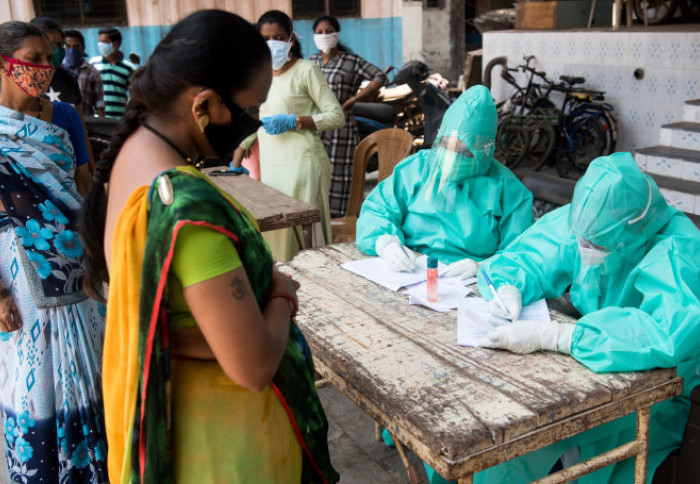Imperial's Covid-19 Response Team: support for India during second wave

The Imperial College Covid-19 Response Team is providing projections of the coronavirus outbreak in India and helping health services with planning.
Imperial's researchers are publishing weekly short-term forecasts for the effective reproduction number and Covid-19 deaths in the country.
"It’s a truly tragic situation in India. A new variant (B.1.617) has been discovered there which, with other variants, may partially explain the surge in cases being seen." Professor Neil Ferguson Director of MRC-GIDA and the Jameel Institute
The forecasts project that the current R number for India is around 1.69 (1.53 - 1.74) and there could be around 24,000 deaths (21,500 - 29,100) in the next week.
The researchers use the reported number of deaths due to COVID-19 to make these short-term forecasts as these are likely more reliable and stable over time than reported cases.
The team is also currently projecting outbreaks in 70 other countries with active transmission. The researchers explain that the accuracy of the forecasts vary with the quality of surveillance and reporting in each country. In countries with poor reporting of deaths, these forecasts will likely represent an under-estimate while the forecasts for countries with few deaths might be unreliable.
Imperial are also providing weekly forecasts of the healthcare burden of Covid-19 in India.
The reports aim to provide India and other low- or middle-income countries (LMIC) with an indication of where they are in their epidemic and scenarios of how healthcare demand is likely to vary over the next 28 days.
The scenarios help countries understand how strategies today are likely to shape the next phase of the epidemic.
The reports help countries understand: the total number of Covid-19 infections, the expected number of deaths within 28 days, the number of people requiring oxygen or mechanical ventilation within the next 28 days, and the impact of changing their current intervention policy.
Teams from the WHO Collaborating Centre for Infectious Disease Modelling; the MRC Centre for Global Infectious Disease Analysis and the Jameel Institute at Imperial; and the University of Sussex are producing the weekly reports. The research is supported by Wellcome and UKAID.
Imperial's Covid-19 Response Team have also been supporting the WHO on a forecasting tool for essential supplies such as personal protective equipment, diagnostic equipment, consumable medical supplies, biomedical equipment for case management, and essential drugs for supportive care and treatment of COVID-19.
Working with partners in India
Researchers Professor Nicholas Grassly, Dr Nimalan Arinaminpathy, and Dr Margarita Pons-Salort have been working with public health institutions in India and the Christian Medical College in Vellore, to help country- and state-level planning of different COVID-19 scenarios.
They have also helped to estimate the transmission of the virus (R number) and have been examining how contact tracing could be made more efficient.
Professor Neil Ferguson, Director of MRC-GIDA and the Jameel Institute, said: "It’s a truly tragic situation in India. A new variant (B.1.617) has been discovered there which, with other variants, may partially explain the surge in cases being seen. Mortality is being further worsened by the overwhelming demand on the healthcare system there. Our thoughts are with the people of India at this time.”
Article supporters
Article text (excluding photos or graphics) © Imperial College London.
Photos and graphics subject to third party copyright used with permission or © Imperial College London.
Reporter
Stephen Johns
Communications Division
Roshni Mehta
School of Public Health